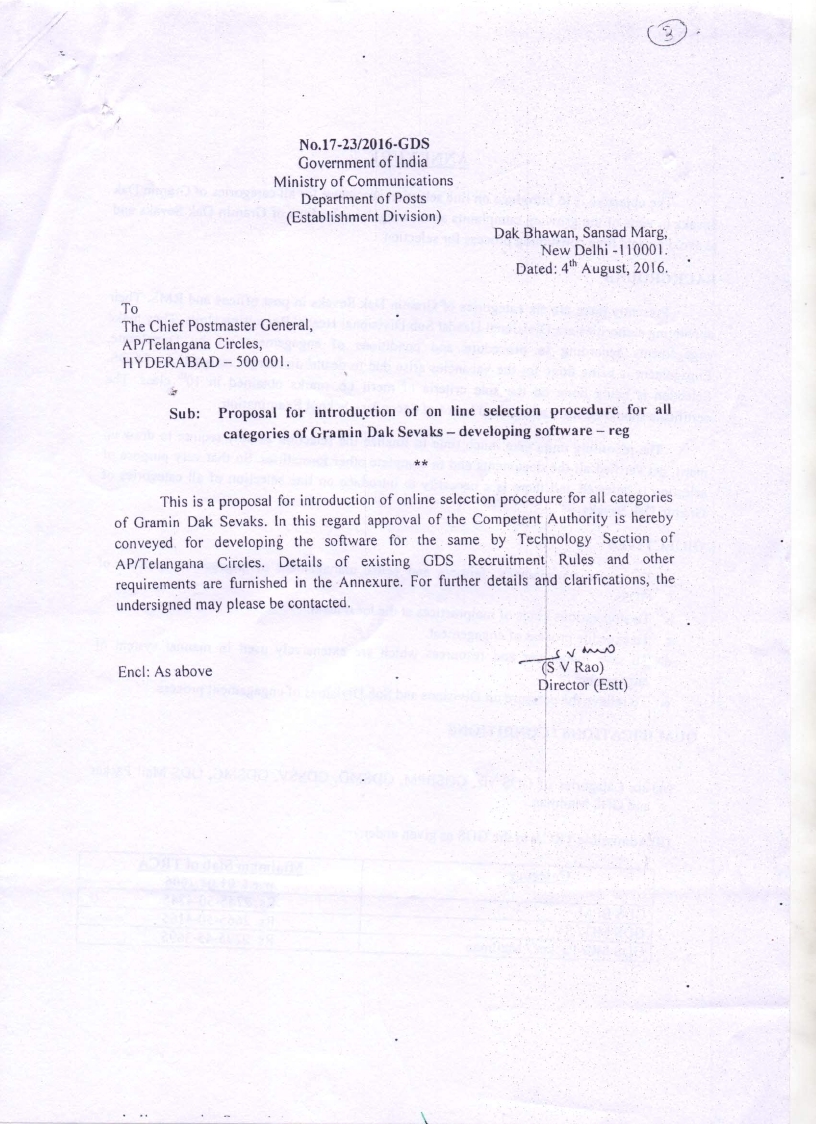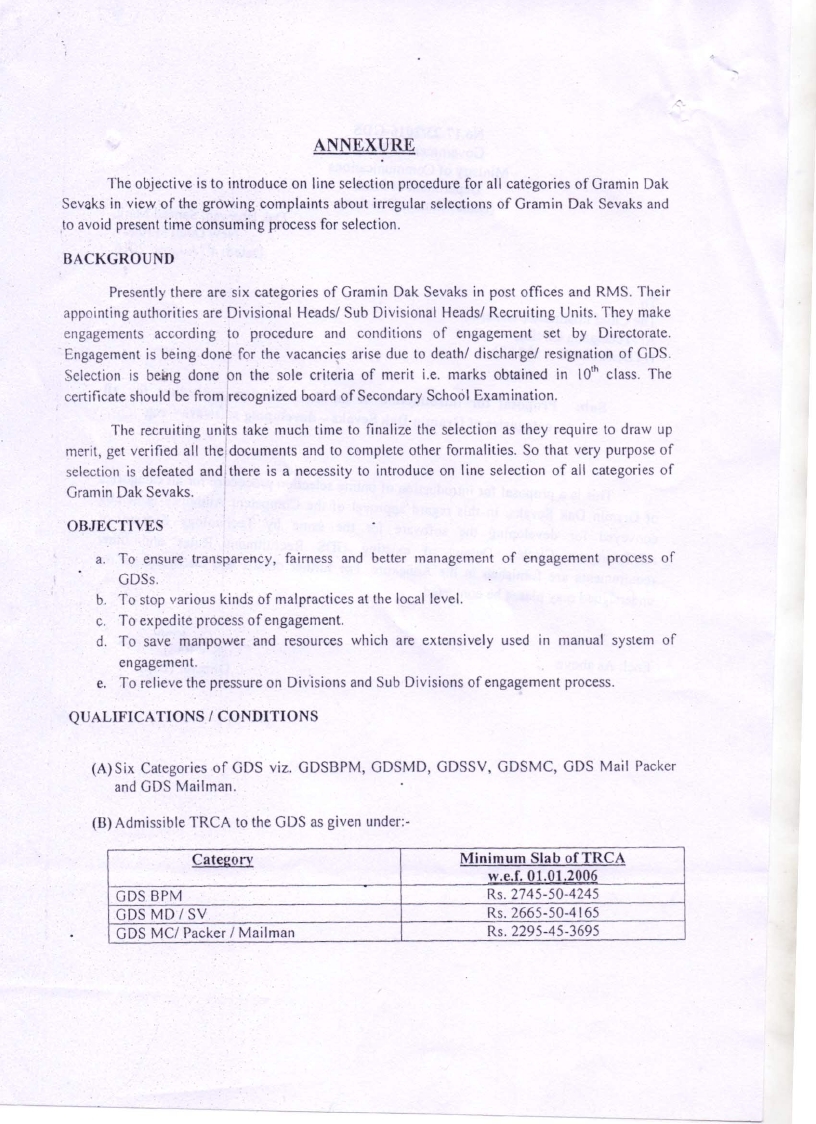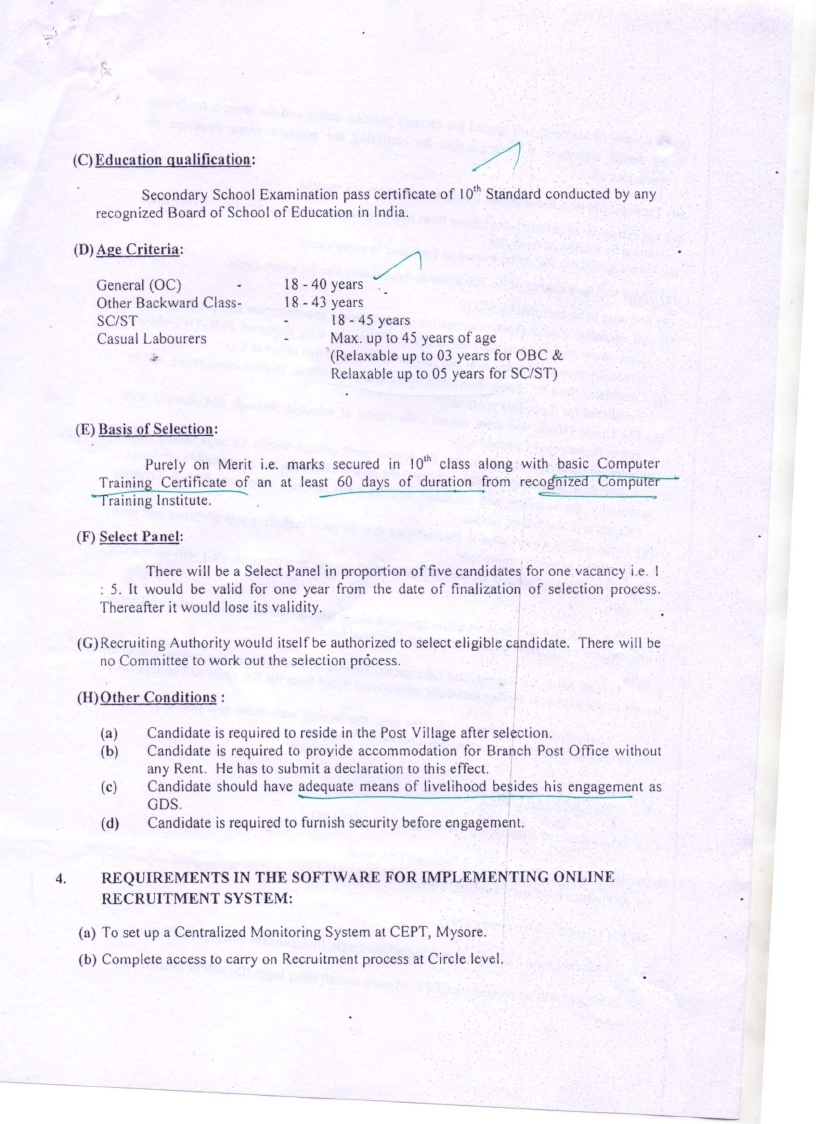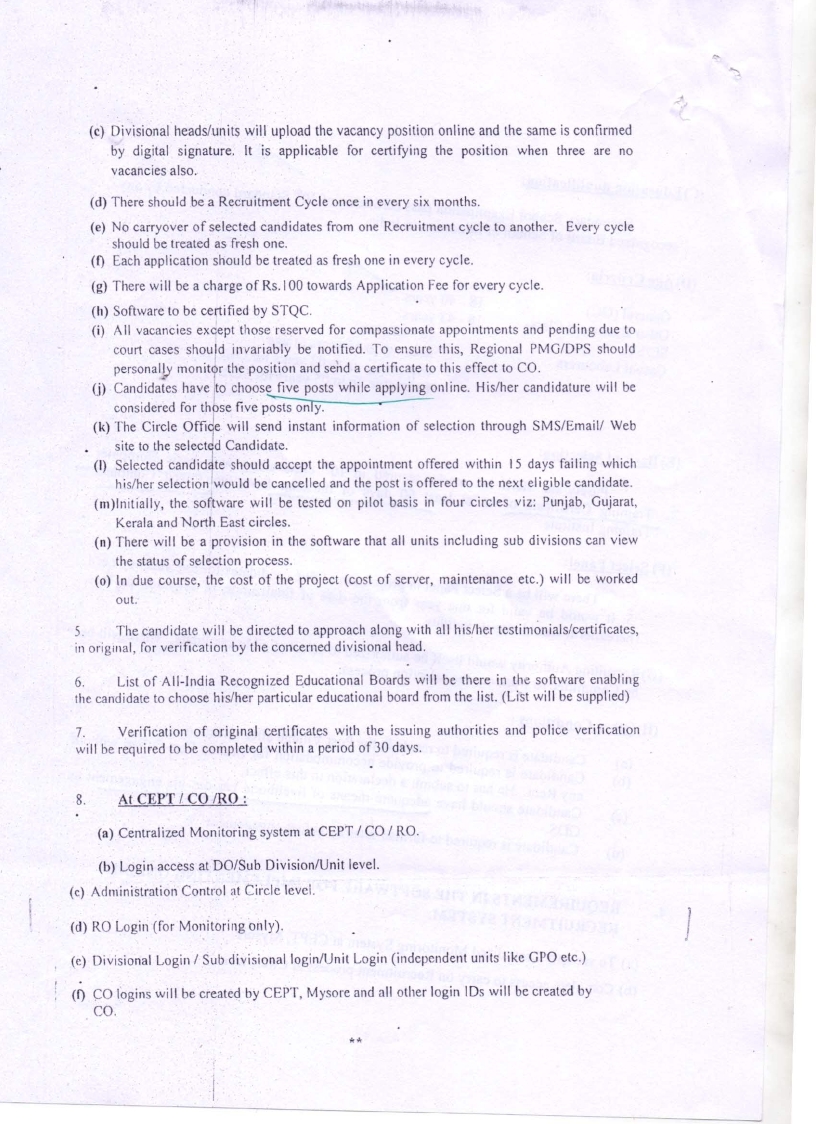
Tuesday, August 30, 2016
Minister of State for Labour and Employment (I/C) held meetings with Central Trade Union leaders on charter of demands of one day strike on 02.09.2016
Press Information Bureau
Government of India
Ministry of Labour & Employment
30-August-2016 18:05 IST
Minimum Wages to be Rs.350/- Per Day for Unskilled Non-Agricultural Workers for ‘C’ Category Areas
Shri Arun Jaitely, the Union Finance Minister, the Union Minister of State(IC) for Labour and Employment Shri Bandaru Dattatreya and Shri Piyush Goyal, Union Minister of State (IC) for Power, Coal and New & Renewable Energy & Mines had a joint Press conference here today on charter of demands of the Central Trade Unions.
The Minister of State for Labour and Employment (I/C) has held meetings with Central Trade Union leaders wherein detailed discussions were held in regard to their charter of demands. Thereafter, the issues were discussed by the Inter- Ministerial Committee headed by the Finance Minister. The following decisions have been taken by the Government:
1. The Bonus Amendment Act will be implemented strictly. The Central Government will pay Bonus for the years 2014-15 and 2015-16 based on revised norms. A government notification in this regard is being issued immediately.
2. The Central Government will take necessary steps to resolve the cases pending in High Courts/Supreme Court with regard to payment of Bonus.
3. It has been decided that, based on the deliberations in the meeting of the Minimum Wage Advisory Board under the Chairmanship of Minister for State for Labour and Employment (I/C) for revising the basic minimum wages for central sphere, the Government has decided to fix the minimum wages at Rs.350/- per day for unskilled non-agricultural workers for ‘C’ category areas keeping in view the modalities of fixing minimum wages.
4. The registration of the contract workers and their staffing agencies is mandatory as per law and states will be advised to strictly implement the same. Erring contractors will face appropriate action for any violation in this regard.
5. The issue of giving social security benefit to the unorganised sector (eg., Anganwadi, Mid-day meal, Asha volunteers etc.) will be examined by a committee which will give its report at the earliest.
6. Advisories will be issued to all the States Governments to ensure that registration of Trade Unions takes place within 45 days.
7. The Central government has reiterated its commitment towards tripartite consultation process.
8. Sector specific meetings will be held to resolve issues relating to respective industries.
Later interacting with media Shri Bandaru Dattatreya appealed to Trade Unions to reconsider their call for strike, in national interest.
Sunday, August 28, 2016
IMPORTANT GOVT ORDER : Extension of benefit of Retirement Gratuity and Death Gratuity to the Central Government Employees covered by new Defined Contribution Pension System (National Pension System)
IMPORTANT GOVT ORDER
A MAJOR VICTORY OF THE STRUGGLE OF CENTRAL GOVT EMPLOYEES:
Confederation of central Govt Employees & Workers have been continuously fighting against pension reforms implemented by Govt in tune with the neo-liberal policies and demanding SCRAPPING OF THE NEW PENSION SYSTEM (NPS). Further we have been demanding that those employees who are covered by NPS should be eligible for payment of Death cum Retirement Gratuity (DCRG) and Family Pension and also Govt guaranteed Minimum Pension and Compensation for price rise (Dearness Relief). Now the Govt has conceded one of our demand. Govt of India has issued orders to extend the benefit of Gratuity to all NPS Employees. Further the Cabinet has decided to constitute a committee for streamlining the implementation of NPS. We shall present the remaining issues before that Committee also. Scrapping of NPS is one of the main demand of 2016 September 2nd General Strike also. No struggle will go in vain. Let us make the strike a grand success
M.Krishnan, Secretary General, Confederation.
No. 7/5/2012-P&PW(F)/B
Ministry of Personnel, Public (Grievances and Pensions
Lok Nayak Bhawan, Khan Market,
New Delhi-110 003, Dated the 26th August, 2016
OFFICE MEMORANDUM
Subject: Extension of benefit of Retirement Gratuity and Death Gratuity to the Central Government Employees covered by new Defined Contribution Pension System (National Pension System) – regarding.
The undersigned is directed to say that the pension of the Government servants appointed on or after 1.1.2004 is regulated by the new Defined Contribution Pension System (known as National Pension System), notified by the Ministry of Finance (Department of Economic Affairs) vide their O.M. No. 5/7/2003-ECB & PR dated 22.12.2003. Orders were issued for payment of gratuity on provisional basis in respect of employees covered under National Pension System on their retirement from Government service on invalidation or death in service, vide this Department’s O.M. No. 38/41/2006-P&PW(A) dated 5.5.2009.
2. The issue of grant of gratuity in respect of government employees covered by the National Pension System has been under consideration of the Government. It has been decided that the government employees covered by National Pension System shall be eligible for benefit of ‘Retirement gratuity and Death gratuity’ on the same terms and conditions, as are applicable to employees covered by Central Civil Service (Pension) Rulke,1972.
3. These orders issue with the concurrence of Ministry of Finance, Department of Expenditure, vide their .D. Note No. 1(4)/EV/2006-II dated 29.07.2016.
4. In their application to the persons belonging to the India Audit and Accounts Department, these orders issue after consultation with Comptroller and Auditor General of India.
5. These orders will be applicable to those Central Civil Government Employees who joined Government Service on or after 1.1.2004 and are covered by National Pension System and will take effect from the same date i.e. 1.1.2004.
Sd/-
(Harjit Singh)
Director (Pension Policy)
****************
Extension of benefits of (Retirement Gratuity and Death Gratuity) to the Central Government employees covered by new Defined Contribution Pension System (National Pension System)-regarding (Click the link below to view original order)
http://ccis.nic.in/WriteReadData/CircularPortal/D3/D03ppw/ppwf_26082016.pdf
Dr. Santosh Ku. Kamila (IPoS-1986) posted as Chief PMG, Odisha Circle
Dr. Santosh Ku. Kamila (IPoS-1986) posted as Chief PMG, Odisha Circle vide Directorate Order No.1-3/2016-SPG dated 26-08-2016.
AIPEU Gr C, Phulbani welcomes him to Odisha Circle.
Thursday, August 25, 2016
IPPB to start hiring activity as it gets nod from MCA
NEW DELHI: The Registrar of Companies under the Ministry of Corporate Affairs (MCA) has incorporated the India Post Payments Bank (IPPB) Limited that will allow IPPB to start critical operations such as recruitment of banking professionals ahead of its services commencement from March 2017.
IPPB is expected to start operations with a capital expenditure of Rs 800 crore under the Department of Posts (DoP) and plans to set up 50 branches initially which would be expanded to 650 by September 2017.
The move will allow the government to fill in key positions for running IPPB.
The Board's constitution will include five independent directors (51%) and four (49%) in-house representatives from the government, including DoP, a top government official earlier said.
The DoP is also working on to employ as many as 2,000 individuals across multiple roles that will include Chief Finance Officer (CFO), Chief Technology Officer (CTO), Chief Risk & Compliance Officer and branch managers through the Banks Board Bureau (BBB).
The Department of Financial Services is, however, acting as a nodal agency for the setting up of IPPB.
Through 1.55 lakh post offices which will also act as an extension for payments bank services together with 650 full-fledged branches, the government aims to bring financial inclusion for the unbanked.
IPPB is poised to create a national payments architecture riding on a modern payments platform and ubiquitous information and communication technologies that can be accessed by all users and service providers like never before, the department in a statement said.
7th Pay Commission Latest News: No hike in minimum pay of Rs 18,000, central government employees might go on strike
In a bad news for central government employees, the government has
reportedly refused to hike the minimum pay of Rs 18,000 as recommended
by the 7th Pay Commission and approved by the Union Cabinet.
New Delhi, Aug 23: In a bad news for central government employees, the
government has reportedly refused to hike the minimum pay of Rs 18,000
as recommended by the 7th Pay Commission and approved by the Union
Cabinet. The central government employees are not going to get more than
minimum pay of Rs 18,000 as the public sector workers have also
demanded minimum pay of Rs 18,000 which will bring extra burden on
government. Finance Ministry sources working on the implementation of
the 7th Pay Commission recommendations, has made clear that there is no
scope to change in minimum pay Rs 18,000.
“The demand of central government employees through National Joint
Council of Action (NJAC) for hiking minimum pay Rs 18,000 to Rs 26,000
may be considered by the National Anomaly Committee but they can do
nothing,” a Finance Ministry source was quoted as saying by the Sen
Times. The central government employees unions have threatened to carry
out an indefinite strike if their demand of hike in minimum pay is not
fulfilled. But the government is in no mood to change mind on central
government employees’ demand.
While the central government employees want hike is minimum pay of Rs
18,000, the government cannot accept their demand. It is because Public
Sector Undertaking employees, who used to get less than the central
government employees, are now demanding pay hike equivalent to central
government employees. Since the government is not in position to bear
this extra burden, it would not accept the demand of central government
employees to increase minimum pay of Rs 18,000.
“Now, it is generally seen that Public Sector Undertaking employees get
less pay than the central government employees and they will demand to
hike pay equivalent to central government employees. So, the focus has
now shifted to PSUs- whether they would implement a similar pay hike for
their employees or not,” Finance Ministry officials were quoted as
saying. “If they hike pay for their employees, the central government is
likely to face difficulty in bearing this extra financial burden.
Accordingly, central government employees demand for hiking minimum pay
of Rs 18,000 will not be accepted,” they added.
The government in July issued the notification for the implementation of
the 7th Pay Commission recommendations. The 7th Pay Commission
notification confirmed that central government employees 14.27 per cent
hike in basic pay at junior levels, the lowest in 70 years. The Cabinet
also approved the increase in minimum pay Rs 18,000 from existing Rs
7,000. But the central government employees want to increase minimum pay
from Rs 18,000 to Rs 26,000. The employees’ unions have threatened to
go on strike if their demands are not met.
Source-India.com
7th Pay commission has just given a small hike in pay where as many anomalies !
Recent pay commission has just given a small hike in pay where as many anomalies are likely to arise .
Pay differences for Promotees and Non Promotees are seen and the non
Promotees found getting higher than the actual promotees.. eg. A person
who has been selected as Post Office Inspector in 2006 (6th Pay
Commission ) will be receiving lesser pay as against the person who has
failed or not opted for the Postal Inspector Post after implementation
of 7th Pay commission
Promotional loss are seen for officials promoted from 2800/- grade pay
to 4200/- grade up to 01.07.2017.. Officials can opt for next increment
for fixation if promotion falls before 01.07.2017.
Heavy loss for option to take fixation from 01.07.2017 and officials
have to forgo all the arrears of Pay Commission until their next
increment. This has caused greater dissatisfaction among the employees.
Promotion to next level provide only one increment and does not provide
any additional benefit. Even if the officials decline promotion they
would get the same in their next date of increment.
Hence Promotion in 7th CPC is total waste.
Source-SA Post
Wednesday, August 24, 2016
GDS Online Selection procedure




Click the link given below to view the online selection procedure for all categories of GDS.
https://drive.google.com/file/d/0BwUaF_99n1SacERfbjRFTDk3cDQ/view?usp=sharing
Second Meeting of the Committee constituted to examine the recommendations of 7th Central Pay Commission regarding Allowances.
7th Pay Commission – Second meeting on Allowances on 01.09.2016 will be held at
Room No. 72 North Block, New Delhi under the Chairmanship of Finance Secretary
and Secretary (Expenditure) Committee will seek views of National Joint Council
of Action (NJCA).
To
Shri Shiva Gopal Mishra
Secretary, National Council (Staff Side), JCM
13C, Feroz Shah Road,
New Delhi.
Sir,
Source: AIRF
No.11-1/2016-IC
GOVERNMENT
OF INDIA
MINISTRY
OF FINANCE
Department
of Expenditure
(Implementation
Cell)
Room
No.216, Hotel Ashok,
Chankyapuri,
New Delhi,
Dated
:22/23.08.2016
To
Shri Shiva Gopal Mishra
Secretary, National Council (Staff Side), JCM
13C, Feroz Shah Road,
New Delhi.
Subject: Second Meeting of the
Committee constituted to examine the recommendations of 7th Central Pay
Commission regarding Allowances.
Sir,
I am directed to inform that the 2nd Meeting of the
Committee on Allowances will be hedl on 01st September, 2016 at 3.00 PM in Room
No.72, North Block, New Delhi under the Chairmanship of Finance Secretary &
Secretary (Expenditure).
2. I am further directed to inform that the Committee on
Allowances has desired to meet the representatives of the National Joint
Council of Action (NJCA) in the aforesaid meeting to obtain their views on the
recommendations of 7th Central Pay Commission relating to allowances.
3. You are, therefore, requested to attend the aforesaid
meeting with their members of Standing Committee of National Council Staff Side
(JCM). The names of the members attending the meeting may please be sent on or
before 29th August, 2016 to the undersigned so that necessary arrangements can
be made.
Yours
sincerely,
sd/-
(Abhay
N.Sahay)
Under
Secretary (IC-7th CPC)
Source: AIRF
Proud to be a Postal Assistant, having incomparable job profile
There is a specific reason for posting this article. So many candidates who have applied for the post of Postal Assistant in the recent recruitment have asked me that whether there is any difference between bank clerk and Postal Assistant. And at the same time most of the people are unaware of the nature of duties of Postal Assistant. More over this article will help the existing officials to understand the complexity of their job profile.
I have prepared this post by extracting details from the memorandum submitted by National Federation of Postal Employees to the 7th Central Pay Commission.
Postal Assistants are the back born of India Post and the nature of work assigned to them spreads over long hours besides shouldering heavy responsibilities including monetary and non-monetary transactions. Postal Assistant is the main functionary in the Postal Network and translates the policies and planning into practice.
The Postal Assistant has to perform wide varieties of duties like that of Marketing Executives, System Administrators, Inspectors, Accountants, Post Masters, Auditors, Managers, etc.
The Postal Assistant is to perform Banking Transaction, Insurance transactions, Accounting work, Treasury works, System administrators work, Marketing Executive works, Postmasters work, Public Relation Inspector works, philately work, counter works including handling of heavy cash apart from all the business and traditional mails related work being performed by him. In no other department in India such variety and kind of work is being performed by one and the same official other than the Postal Assistants. Their job profile is very critical and contains enormous responsibilities.
The conditions of service of postal clerks differ very much from those of ordinary clerks of other Government departments, because their hours of work are longer and more irregular beginning in some cases at 5:00 AM and ending at 10:00 PM. In an ordinary administrative office if the staff cannot finish the day's work, the unfinished work is carried over to the next day but in the post offices, the work cannot be carried over to the next day. Day's mail must be delivered on the same day and despatched on the same day. The office accounts and various abstracts must be adjusted on the same day itself and returns to the audit/accounts office must be sent on due dates. The staff of post offices cannot go home unless all his work is completed. If the staffs are inadequate, it might work beyond the fixed hours of duty and late in the night to finish the work.
So is very clear that the Postal Assistants were treated as superiors when compared to other employees in the Government of India and Bank employees granted. The Postal Assistants do the similar work being performed by officials of other Govt. departments and Banks. Following are the some among them.
1. Postal Assistants do the work of 'Bank' involving huge monetary responsibility in the Postal Savings Bank, deals in Savings Certificates, NREGA Accounts, TD Accounts, Senior Citizen Schemes, RD accounts, PPF accounts, MIS accounts, opening of BPL Accounts, etc. After the introduction of a Core Banking solution, the Postal Assistant must perform all the duties being performed by Bank employees including electronic transfer, issue of ATM cards, etc.
2. Postal Assistants do the work of Insurance Companies as the postal department itself runs the Postal Life Insurance and Rural Postal Life Insurance and knows the different rules and regulations on the subject. He/she should be conversant with the insurance work and does all the works related to Marketing, Accounting, Claim settlement etc. In particular after the decentralization of PLI at HO level, the Postal Assistants are shouldering various responsibilities in maintaining records, pertaining to claims cased, maturity sanctions, Loan processing, issue of premium notices, revival of lapsed policies, acceptance of new proposal and commission payment, etc.
3. They are now working as a System Administrators who manages around 53 software and its database, networks and all hardware. They are periodically upgrading the database with patches supplied by CEPT, Mysore and SDC Chennai. Postal Department is the only Department in the country is being computerized fully only with the assistance of the Postal Assistants who know computer operations and developed software and maintaining the hardware, etc.
4. Postal Assistants are also performing the duties of Marketing Executive who procure business of various kinds.
5. Postal Assistants do the work of cheque clearance through CTS and traditional method.
6. Postal Assistants do the work of Election Commission in collecting and verifying the Electoral rolls.
7. Postal Assistants do the Pension Payment work of other departments as well like Railway, BSNL, Telecom, etc.
8. Postal Assistants do the work relating to Railway while booking of train tickets.
9. Postal Assistants do the work of Police while issuing identity cards.
10. Postal Assistants do the work in different branches, like mail & sorting, Delivery and Deposit of Registered letter, Parcel, Money Orders, Postal Orders, delivery of Aadhar Cards etc.
11. Postal Assistants do the work of enquiry clerk, covering multifarious subjects.
12. Postal Assistants do the work of Treasurer and all the treasury related works being performed by him includes handling of huge amount of cash.
13. Postal Assistants do the work of an Accountant which includes classifying the accounts, preparation of budget, processing of pension cases, sanctioning of various types of bills, etc.
14. Postal Assistants do all the work of a Counter clerk, which also involves handling of huge amount of cash, such as Money Orders, Telephone Bills, Savings Bank, MNREGS transactions, etc.
15. Postal Assistants do the work of Correspondence clerk.
16. Postal Assistants do the work of an Accounts clerk with the various accounting procedure.
17. Postal Assistants do the work of Sales Executive by selling Gold Coins in the Post offices.
18. Postal Assistants do the work Income Tax by deduction of taxes and submission of eTDS returns of employees and Agents.
19. Postal Assistants do the work of Promoter in various financial schemes developed under the Business tie up.
20. Postal Assistants do the work of State Government Public Sectors Undertakings in collection of Taxes, like Property Tax, Water Tax, professional Tax, Electricity bills, sale of various application forms and collection of different recruitment Fee, etc.
21. Postal Assistants do the work of logistic and promote its business.
22. PA Handles lakhs of rupees worth insured I foreign articles daily involving great risks.
23. Helps the Excise department 1n checking & transmission of contraband goods.
24. Postal Assistants do the customs department work by collecting Customs Due on foreign articles etc.
25. PA Has to be conversant not only with the Indian Postal operations, but Foreign Postal business as well.
26. Postal Assistant must be conversant with hundreds of orders, circulars, etc. which will be changing every day, issued by the higher authorities in Department.
27. He has to hold meetings of periodical, post forum and meetings with public to sort out local issues.
28. Postal Assistant has to do the new work arising out of new schemes and tying up organisations like UTI Mutual Fund, Oriental Insurance corporation, Clearance of cheques for various private sector companies like TVS, Bajaj , HDFC Bank, verification of address proof for Hutch and BSNL mobile connection, acceptance of all bills in Post Office Counters, Accepting fees for recruitment is all State Government, etc.
29. There is also a huge work related to filing of Tax Deduction Source (TDS) returns to the Income Tax Department, Acceptance of IT returns from public, etc., now these works are performed by the Postal Assistants. In addition to these several services were introduced depending on the local needs like cable TV verification, Books sales and distribution etc.
30. The PAs working at Philatelic Bureau and Philatelic Museum are required to take responsibilities and discharge the skill like the curators of the National museums.
31. PAs working as Trainers or Instructors at the different training centres like PTC(Postal Training Centres), RCTC (Regional Computer Training Centres) and DCTC (Divisional Computer Training Centres) are discharging their duties with more skill and more professionalism.
32. The Postal Assistant who is in charge of post office will have to perform a wide variety of works. He acts as a liaison officer with the general public and ensures secrecy, security and confidence of the people in various circumstances. He should possess adequate knowledge in various rules and regulations and should have intelligence to tackle the customers.
33. The Postal Assistants attached to the divisional offices should perform the following administrative duties.
Maintenance of the personal files of staff, issue of leave orders, arrangements of substitutes in various circumstances, preparation and maintenance of gradation lists of various categories of employees, appointment and confirmation of staff, arrangement for holding different departmental examinations and recruitment, matters relating to GDS, collection and processing of pension papers, preparation of rotational transfer list, leave roasters, reservation roaster, grant of different advance like GPF advances , cycle advance, scooter advance, festival advance, etc.
Adequate proposals for opening and grading of offices, redeployment or relocation of post offices, review of establishment, redeployment of staff on the basis of workload of office, revision and fixation of stationary charges, grant of cycle and other allowance, etc.
Apart from this, these Postal Assistants have to attend various public complaints, mail arrangements of offices, follow up action on inspection reports made by inspecting authority, issue of sanctions relating to SB I SC claims, all matters relating to surcharge I supply of articles of stock I forms, sanction of all bills, etc. Planning, preparation of yearly budget estimates, etc.
The duties to be performed in this divisional office are more skilled and highly responsible while comparing the work in the other administrative offices. There are enormous work due to Business Development and Technology for which no proper training is imparted. Besides all, they are looking after the building maintenance, Tender related works etc.
Source-postbankofindia.org
Subscribe to:
Comments (Atom)














